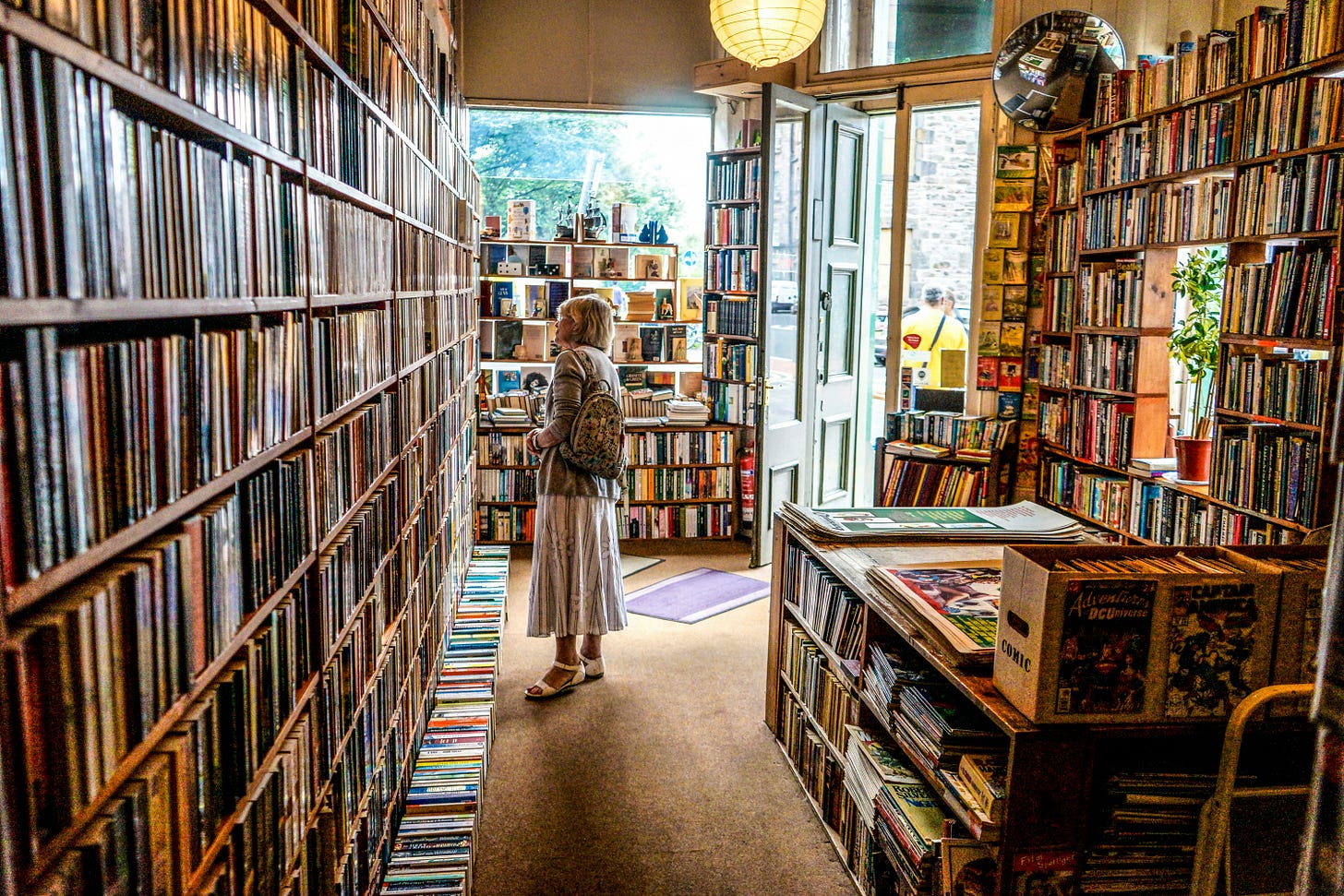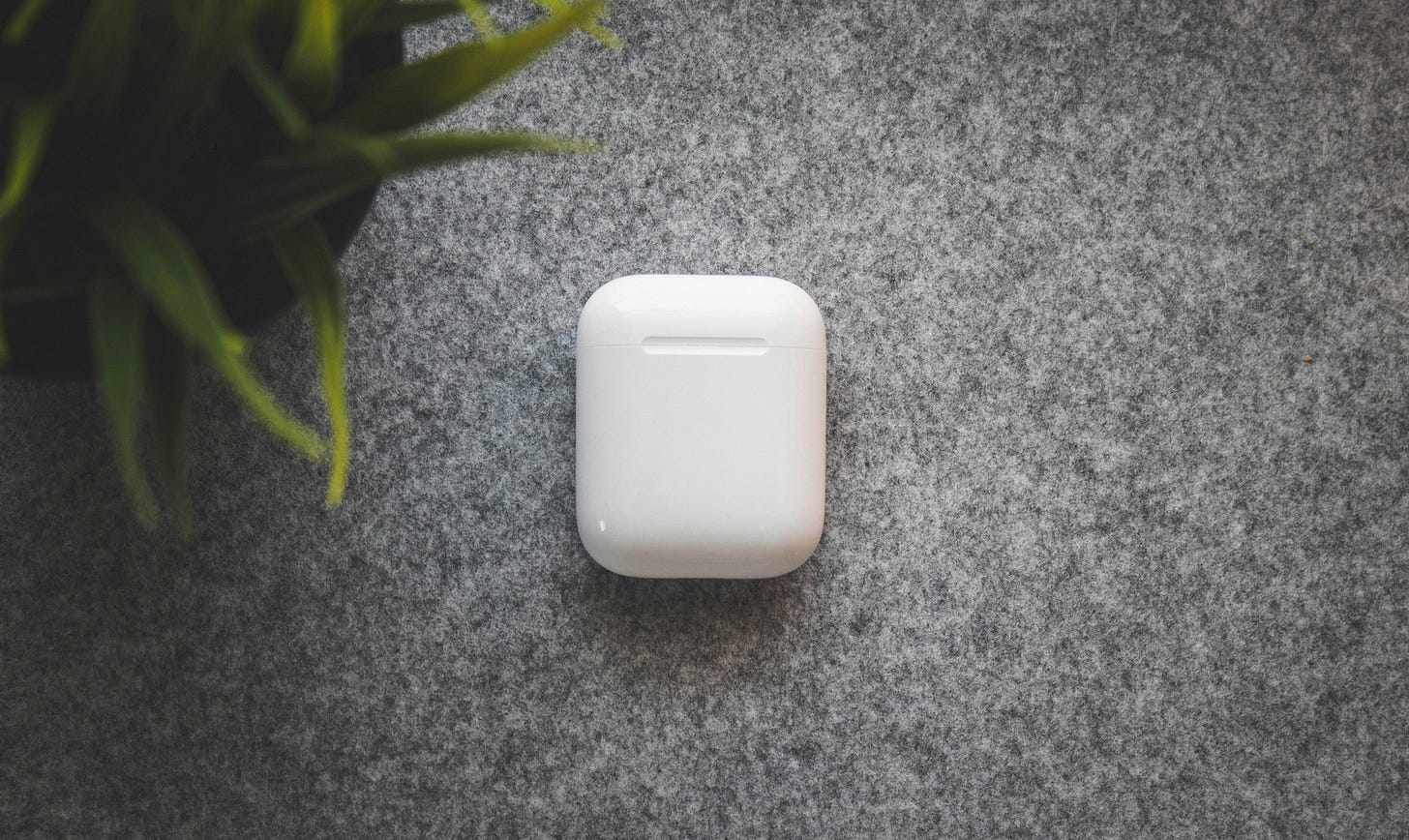Hi, and welcome to Monday #X with M. Each week, I’ll share some topics I’ve come across recently—an idea, article, or story—that caught my attention. I’ve learned so many interesting things from the people who’ve shared what they’ve found useful, and I consider that an act of kindness. This is my weekly care package to you, filled with fun and/or thoughtful discoveries, and sometimes a bit of venting about the craziness of the world to start your week on a good note.
I’ve chosen the #X format because I sometimes struggle with consistency, and I thought seeing the number grow each week would motivate me to keep going. Let’s get into it!
Spotlight Three
I. Books: These Loyal Companions

You know how we complain about how hard it is to find good friends and people with whom we can have meaningful conversations? Maybe that’s because a majority of the ones you would really like to sit down and talk to spend their time writing books. At least for me, I suspect that’s the case. Books are the best companions in this crazy world, not to replace humans altogether, but if you let them, they can enrich your life and even help you find better people in the real world by letting you live through their characters and stories. Some say it’s not healthy to keep looking for yourself between the pages of books, but I beg to differ. Show me one other thing in the world that can give you the tools to explore history, geography, culture, and life the way books do. You might say cinema? True, but with the caveat that you are inevitably watching someone else’s perception of things. You are watching through the director’s eyes, not your own.
So now comes the question of what to read when there are too many options. There are endless ways you can approach this. You can go by classics vs. modern. You can go by eras, by genres, by popularity, BookTok, winner lists, etc. I have found the one I want to try going through: The 100 Best Books of the 21st Century by the New York Times.
I feel I don’t know much about what has happened in the literary fiction world these past years, as I have been too busy still reading the famous books and classics and mostly the ones there has been hype about. I have read a lot of escapism literature lately, which I needed and enjoy, and now I want to go a different road. See? You can easily do that when books are your companions.
II. Protect Your Hearing

Age is a curious thing. As you move forward, you start paying attention to things you wouldn’t normally do or brush off, thinking they are so far in your future that they don’t apply to you. But before you know it, they will. That is why, recently, when I see articles and posts about health, aging well, and how to take better care of your body, I don’t scroll as fast. Sometimes, like this one, I pause and actually read it. I had a grandpa who was hard of hearing, and I could see how isolated he felt from the rest of us because he was ashamed to keep asking us to repeat ourselves. He used to sit as close as he could to the TV to watch the news. He was the kindest man I have ever known, but sometimes I wonder how much more we could have enjoyed his company if he wasn’t so keen to hide in his room most of the time.
Here’s the gist of the tips mentioned in this article:
Do: Be mindful of loud sounds. If your job includes a lot of loud noises and you are using your headphones at full volume, you are not doing yourself any favours.
Don’t: Use Q-Tips. This is going to be tough for me, and it has been the centre of endless debates this past year, but I have been hearing more negative points about it than positive, so maybe it’s time to start trusting the science. If you have buildup in your canal and don’t have other ear problems, you can purchase over-the-counter earwax softener drops and flush the ear with warm water using a rubber bulb syringe.
Do: Test your hearing. The World Health Organization recommends adults ages 50 and older test every five years until they turn 64. Then, testing can increase to every one to three years.
Don’t: Brush off hearing changes. If you experience sudden hearing loss in one or both ears, treat it as a medical emergency and visit an otolaryngologist or audiologist within 72 hours.
III. Battling Anxiety
Anxiety, this nemesis of ours. I think for most of us, we have thrown in the towel and accepted anxiety as a part of our lives, and all we can do is try to keep it from becoming a dominant part. Not all anxieties are bad, and once you get the hang of what wakes up the beast and how you can navigate through the storms, it becomes more bearable. There will still be days when all you want to do is sit in silence and stare at the wall, but those days can become less daunting if you keep trying. This is what I keep telling myself, at least.
In this talk at the New York Times Well Festival in Brooklyn, Sara Bareilles, singer, songwriter and Broadway star, Dacher Keltner, a professor of psychology at the University of California, Berkeley and Dan Harris, the host of the “10% Happier” podcast talk about some of the strategies that have helped them cope with anxiety.
Focus on action. “But one of my critiques is that we — especially in social media — tend to wallow in the suffering,” Mr. Harris said. He wanted people to turn to the “many, many things you can do about it.” It’s not easy or simple to move forward, the panelists agreed. Dr. Keltner described anxiety as “one of the hardest conditions to overcome.” Still, as a guiding principle, Mr. Harris said he liked to remind himself: “Action absorbs anxiety.”
Be willing to experiment. Different coping mechanisms work for different people. Ms. Bareilles said she relied on therapy, medication, meditation, exercise and “lots and lots and lots of human connection.” “The single best thing you can do outside of social connection is get outdoors,” he said, adding that research shows: “Clouds and sky and light and the sound of water and the smell of spring get into your nervous system and calm it all down.”
Cultivate mindfulness. The speakers emphasized the roles of mindfulness and meditation in their own lives. It can help to start small, just doing a few minutes here and there, Mr. Harris said. Dr. Keltner recently tried a New York Times focus challenge, spending 10 minutes looking at van Gogh’s “Starry Night,” he said. He found himself tearing up as he took in the painting.
On a Brief Note
Freezing Flowers
It’s spring, and we should stop talking about cold, freezing, or anything even remotely resembling winter, but this was too good to pass on and not share with you.
This is how Paloma Rincon, the photographer, explains this project: I wanted to feature this classic subject-matter (Floral Photography) using some of the particularities of it’s own language and technique and at the same time giving it a more contemporary approach, playing with ice geometries in a juxtaposition of textures and materials.
Words Worth Sharing
The world is often unkind to new talent, new creations. The new needs friends.
Anton Ego
This is it for this week’s edition of Monday #X with M. If something here made you think, smile, or sparked your curiosity, consider sharing it with someone who might enjoy it too. You never know whose day you might brighten with a thoughtful word or idea—it’s a small act of kindness that can go a long way. See you next Monday!






